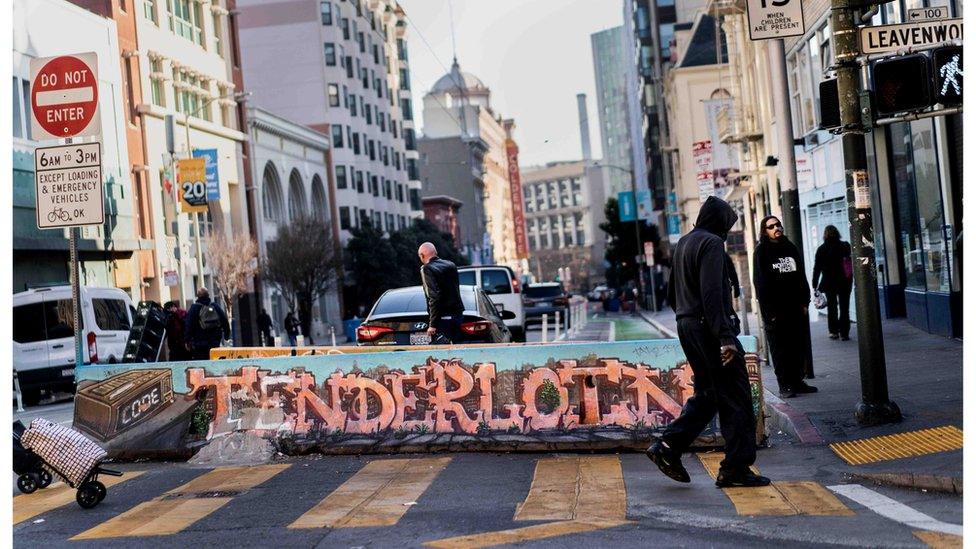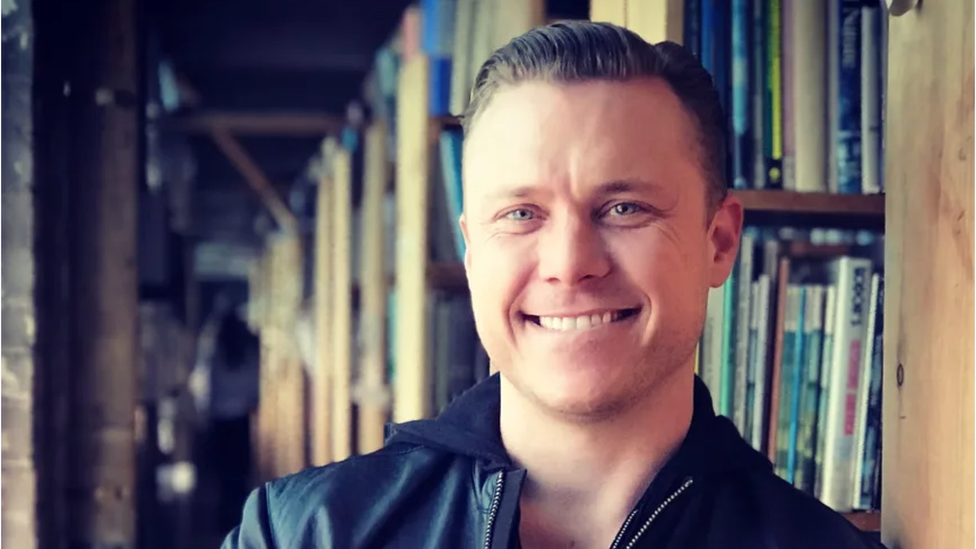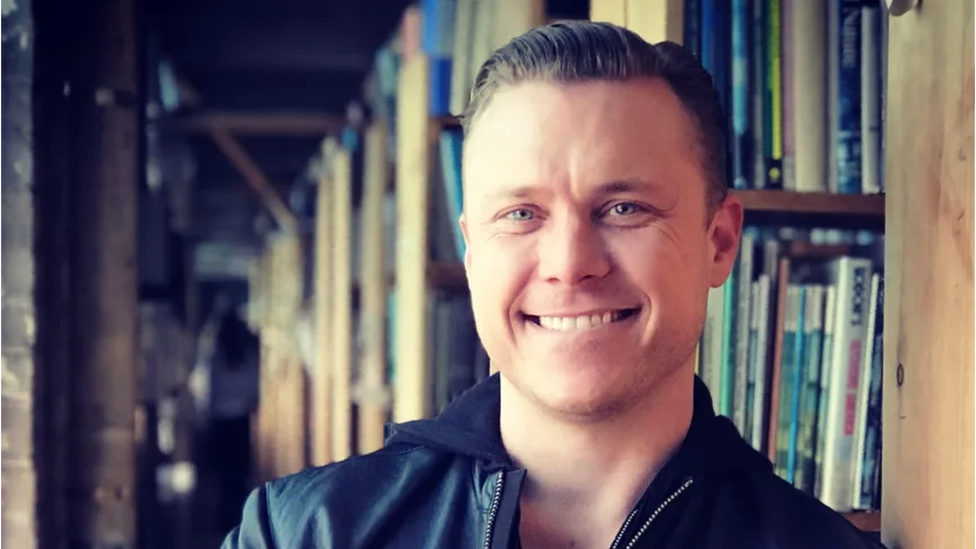Bob Lee killing highlights San Francisco crime fears
- Published

The Tenderloin district has a reputation for high drug use and crime
Bob Lee was part of the tech establishment. The former chief technical officer of Square and founder of the $40bn payment app Cash App.
In the early hours of Tuesday morning, he was killed in a stabbing, in a supposedly "safe" part of San Francisco.
His death has sent a chill through the tech community.
Twitter's former CEO, Jack Dorsey, called the killing heart-breaking.
His friend and fellow tech founder Joshua Goldbard tweeted: "Bob was like a brother to me… Bob's energy was infectious. He made friends everywhere he went."
Elon Musk also added his thoughts on the killing.
"Very sorry to hear that. Many people I know have been severely assaulted. Violent crime in SF is horrific."
San Francisco has struggled with homelessness and drug deaths in recent years. In a city reliant on the tech sector, the pandemic hit its downtown more than any other in the US - it simply hasn't been able to bounce back.
I often hear downtown being described as "dead" or "quiet". And in certain neighbourhoods, the city can feel unsafe, something the city's mayor has previously acknowledged.
Areas around the Tenderloin (in the heart of the city) and Soma, which stands for "South of Market" can feel dystopian, particularly at night.

Tributes poured in for Bob Lee
Many television crews take armed guards with them when gathering footage in the city.
And with the streets so quiet, anti-social behaviour can sometimes feel more threatening and obvious.
The police statistics suggest that San Francisco's murder rate is fairly consistent, external. Fifty-six murders last year. Fifty-six murders the year before. It's on track for something similar this year.
The overwhelming majority of murder victims are black and Latino men, according to police data., external
So far there have been 12 murders in the city. In the first three months of last year there were 10. The number of assaults is also similar.
And when you compare that to other cities, San Francisco compares relatively well. This is not Gotham City.
But the view that Elon Musk articulates, that violent crime is up, is very common.
San Francisco is a relatively small city. Its population is around 800,000. And unlike cities like Chicago, many of the "problem" neighbourhoods are interwoven throughout the central business district.
Twitter global headquarters, for example, is on Market Street, a few blocks away from the Tenderloin. Mobile payment company Block is also close by. San Francisco's problems are out in the open - right in the heart of the city.
For its politicians, desperate to try and entice tech business back to the city, high profile killings like Mr Lee's are devastating.
If influential tech companies decide to stay away, and people begin to leave, it could create what's been referred to as a "doom loop".
The city's influential paper, The San Francisco Chronicle, has recently warned , externalthat the city could be in a negative spiral - and outlined how the city could "die".
As companies leave, tax revenue falls. People use mass transit less until it becomes bankrupt - making it more difficult for low and middle-income workers to get to work. Labour costs rise still further, and the city has fewer funds to tackle things like crime and disorderly behaviour.
The city's mayor responded, saying: "It's easy to throw out dire predictions about the death of downtown. But that's not our reality and it's not going to happen."
San Francisco is one of the most beautiful cities in the world.
It has Silicon Valley on its doorstep. It is also excellently located to take advantage of the new boom in tech - AI.
OpenAI, the maker of ChatGPT, is based in San Francisco, along with a myriad other AI tech start-ups.
The city boasts incredible talent. In many ways it has an awful lot going for it. Yet still, many people are leaving. Last year the American Housing Survey found, external that about 18% of San Francisco residents plan on moving in 2023. Nearly half of them said they were intending to move to a different city.
And unless San Francisco can stem that tide, it's in trouble.
Related topics
- Published6 April 2023
